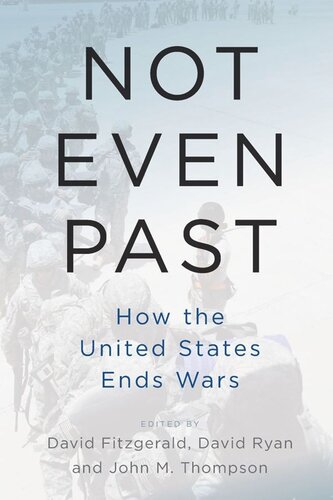

Most ebook files are in PDF format, so you can easily read them using various software such as Foxit Reader or directly on the Google Chrome browser.
Some ebook files are released by publishers in other formats such as .awz, .mobi, .epub, .fb2, etc. You may need to install specific software to read these formats on mobile/PC, such as Calibre.
Please read the tutorial at this link: https://ebookbell.com/faq
We offer FREE conversion to the popular formats you request; however, this may take some time. Therefore, right after payment, please email us, and we will try to provide the service as quickly as possible.
For some exceptional file formats or broken links (if any), please refrain from opening any disputes. Instead, email us first, and we will try to assist within a maximum of 6 hours.
EbookBell Team

0.0
0 reviewsOffers essential perspectives on the Cold War and post-9/11 eras and explores the troubling implications of the American tendency to fight wars without end.
“Featuring lucid and penetrating essays by a stellar roster of scholars, the volume provides deep insights into one of the grand puzzles of the age: why the U.S. has so often failed to exit wars on its terms.”— Fredrik Logevall, Laurence D. Belfer Professor of International Affairs, Harvard University
Vietnam, Iraq, Afghanistan: Taken together, these conflicts are the key to understanding more than a half century of American military history. In addition, they have shaped, in profound ways, the culture and politics of the United States—as well as the nations in which they have been fought. This volume brings together international experts on American history and foreign affairs to assess the cumulative impact of the United States’ often halting and conflicted attempts to end wars.
From the introduction:
The refusal to engage in historical thinking, that form of reflection deeply immersed in the US experience of war and intervention, means that this cultural amnesia is related to a strategic incoherence and, in these wars, the United States has failed in its strategic objectives because it did not define, precisely, what they were. If Vietnam was the tragedy, Iraq and Afghanistan were repeated failures. The objectives and the national interests were elusive beyond issues of credibility, identity, and revenge; the end point was undefined because it was not clear what the point was. What did the United States want from these wars? What did it want to leave behind?